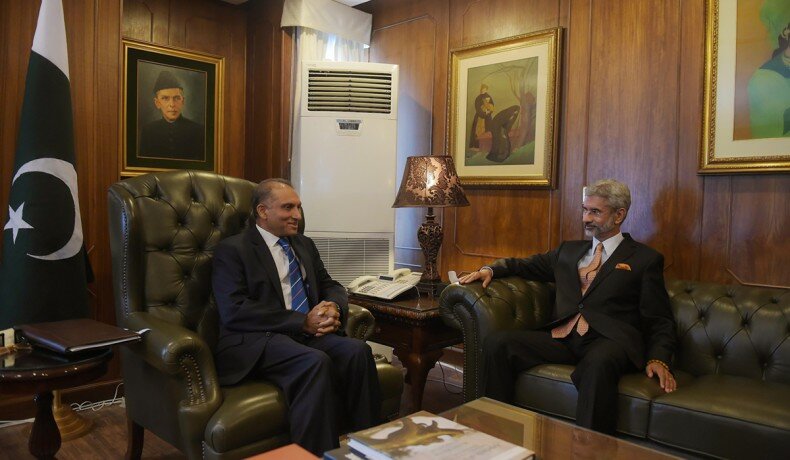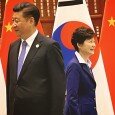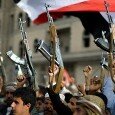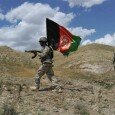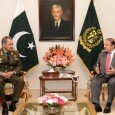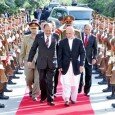By Faisal Raza Khan –
Contrary to media hype on India’s foreign secretary visit to Pakistan, ground realities suggest progress at snail’s pace
After a situation of complete distress, jingoism from India, calls for revenge and a darkness of hatred throughout an interval of seven months, Indo-Pak foreign secretaries met on March 3, 2015.
Mostly, when diplomats meet, they exchange pleasantries but both Pakistani and Indian heads of foreign offices were apparently without any strong gesture. Even during talks both sides had accusation and counter-accusations, remained hard at their stances with no concrete outcome and apparently signs of dialogues were also missing.
Analysts believe that after emergence of powerful Hindutva Modi in India, Indian ministry of external affairs turned towards a hardcore Hindutva foreign policy towards Pakistan, as a result of such strategy tensions were mounted at borders and peace went at back burner.
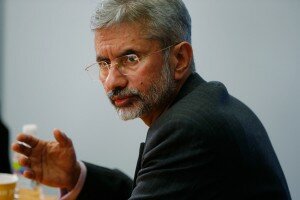 Indian cancellation of foreign secretary level interaction of August 25, 2014 and border clashes were the different chapters of same book. It was apparently looking very difficult that both neighbors can sit together and talk for peace and resolving outstanding issues but the U.S. has taken keen interest in engaging Pakistan and India.
Indian cancellation of foreign secretary level interaction of August 25, 2014 and border clashes were the different chapters of same book. It was apparently looking very difficult that both neighbors can sit together and talk for peace and resolving outstanding issues but the U.S. has taken keen interest in engaging Pakistan and India.
U.S. Secretary of State John Kerry, during his visit to India, offered to mediate to resume talks to create an atmosphere conducive to peace in the region.
During India’s visit on January 25, 2015, president Obama stressed upon Modi for ending border escalations, reviving talks, settling down bilateral issues, focusing on trade and initiating joint efforts for peace and stability in Afghanistan.
Washington was worried about Pak-India tensions, on February 12th, 2015 – president Obama called Prime Minister Nawaz Sharif and told him that India is ready to engage with Pakistan but it will take a little time to straighten out things.
Soon after Obama’s call, Indian premier used cricket diplomacy, called Prime Minister Nawaz Sharif and gave the same gesture what earlier U.S. president had told Pakistan’s Prime Minister and announced sending India’s foreign secretary to SAARC region including Pakistan.
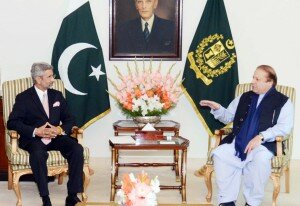 On March 3, 2015 – both foreign secretaries had a warm handshake and bilateral meeting, it was encouraging that Indian foreign secretary Subrahmanyam Jaishankar stressed upon halting ceasefire violations at the line of control (LoC) and at working boundary, accused Pakistan of slowing down Mumbai trial and put allegations on Islamabad regarding cross-border infiltration.
On March 3, 2015 – both foreign secretaries had a warm handshake and bilateral meeting, it was encouraging that Indian foreign secretary Subrahmanyam Jaishankar stressed upon halting ceasefire violations at the line of control (LoC) and at working boundary, accused Pakistan of slowing down Mumbai trial and put allegations on Islamabad regarding cross-border infiltration.
Pakistani delegation flagged Indian involvement in unrest in Balochistan and FATA and focused on meaningful investigations of Samjhota Express bombing and ceasefire violations.
So, the uproar of allegations and counter-allegations echoed during talks but Pakistan also focused on Kashmir while Indian involvement was also raised.
“We need to make a concerted effort to resolve this (Jammu and Kashmir) dispute and indeed other disputes like Siachen, Sir Creek and water issues that could also be addressed through dialogue,” Foreign Secretary Aizaz Chaudhry said during the meeting.
Pakistani official’s body language suggests that things were not much satisfactory and were completely in illusion regarding next round of foreign secretary level talks and resumption of complete ministerial dialogue process.
“Both sides would reflect on today’s discussions and then decide on moving forward, we’ll move when both sides are ready, remain in touch and see how and when to take the next step”, Mr Aizaz told journalists after talks with his Indian counterpart.
It was amazing, unfortunate and very illogical that Pakistani electronic and print media has given this simple meeting an undue hype and termed it as complete dialogue process, which was not and in the end it turned out to be a tour de South Asian countries including Pakistan to revitalize South Asian Association for Regional Cooperation (SAARC).
Initially, Indian external affairs ministry clearly stated that India is not expecting any dramatic results from foreign secretary S. Jaishankar’s visit to Pakistan, emphasizing that his visit was a “SAARC yatra and not Pakistan yatra”.
While talking to media Indian foreign secretary Jaishankar said, “Pakistan will be the next SAARC chair and India would like to work with Pakistan to help SAARC achieve its potential.”
Moreover, the United States of America welcomed the Indian move of sending her envoy to engage with Pakistani counterpart while terming it a beneficial progress for two South Asian neighbours.
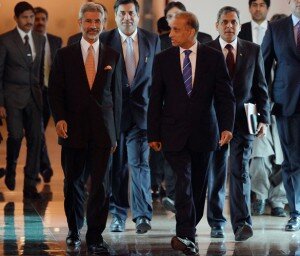 “We were certainly encouraged that they (India-Pakistan) decided to resume dialogue and obviously believe that both India and Pakistan stand to benefit from practical cooperation and an improved relationship, which I think would be good for regional peace and stability in South Asia,” state department deputy spokesperson, Marie Harf said in her statement. “We certainly welcomed the visit. I’d leave that to them to speak to. But in general, obviously, we think cooperation is a good thing,” Harf added.
“We were certainly encouraged that they (India-Pakistan) decided to resume dialogue and obviously believe that both India and Pakistan stand to benefit from practical cooperation and an improved relationship, which I think would be good for regional peace and stability in South Asia,” state department deputy spokesperson, Marie Harf said in her statement. “We certainly welcomed the visit. I’d leave that to them to speak to. But in general, obviously, we think cooperation is a good thing,” Harf added.
During a book launching ceremony in Islamabad, Prime Minister’s Advisor on Foreign Affairs and National Security, Sartaj Aziz termed foreign secretary dialogue a failure in fixing a date for next parleys. “There was no date fixed for the next round of talks,” he said, commenting on the outcome of the meeting.
Means, no decision taken yet to when, where and through which points, both nations will start talking and what would be the ultimate future of bilateral dialogue process.
Foreign policy experts analyze Indian foreign secretary visit as ice breaker and express their hope that it might be the only step towards revival of dialogue as well as pave the way for Indian Prime Minister’s visit to Pakistan.
“It was useful visit, may not lead to a resumption of composite dialogue but resuming official contacts at foreign secretary level is helpful in reducing tensions”, former foreign secretary Salman Bashir said while talking to Pique.
“It may be a precursor to a summit level visit or a bilateral exchange in the SAARC context” Salmad Bashir added.
The writer is an Islamabad based foreign policy, diplomatic, science and climate journalist





















































































